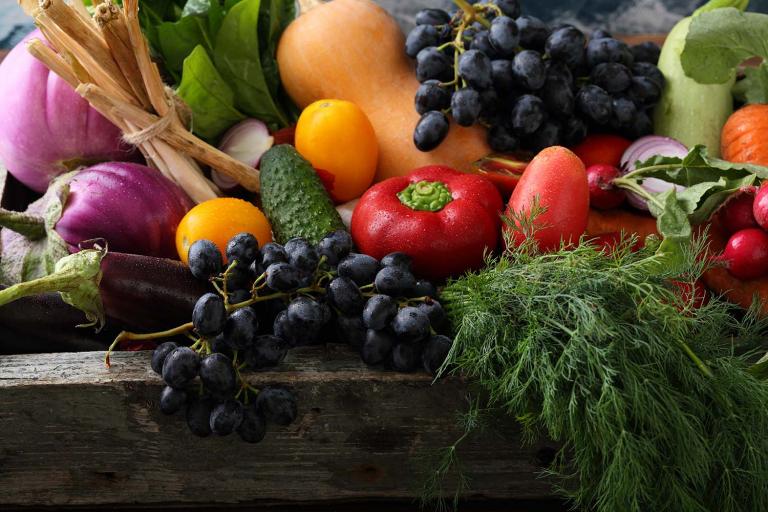The average American household wastes about 20 percent of its food, which adds up to about $1,500 a year. If you play your cards right, you can invest in organic food—and your health—and still save money!
10 Tips and Tricks to Eat Organic on a Budget
Here are 10 surefire methods to help you eat well without breaking the bank.
-
Plan Your Shopping
Before you go grocery shopping, plan the week’s meals, and “shop” from home first. Review the contents of your pantry, fridge, and freezer, and then make your shopping list.
Research shows that just 25 percent of us make grocery lists; research also shows that the people who make lists are the ones paying less for groceries.
-
Reduce Food Waste
Learn how to extend the life of your food.
Studies show that Americans waste 150,000 tons of food a day. That works out to about a pound of food waste a day per person. Much of that waste is related to fruits and vegetables.
Here are some ideas:
- Store leeks and asparagus by cutting off ends and then placing stalks upright in a large glass filled with an inch or so of water.
- Refrigerate all citrus fruit.
- Wilted greens can often be revived with a five-minute soak in ice water.
-
Buy in Season
Buy seasonal produce; it’s cheaper and more abundant when it’s in season.
- If you have excess produce you can’t eat in time, freeze to save for later.
- Consider blanching fruits and veggies if you think they’ll be in the freezer for a long time.
- Use clear containers when possible so contents don’t become a mystery.
- Label containers with the date you stored an item.
-
Learn to Compromise
If you can’t afford to buy all organic produce, you can buy conventionally grown versions of the Clean 15. The Environmental Working Group (www.EWG.org) annually publishes this “Guide to Pesticides in Produce,” which names the fruits and veggies carrying the least pesticide residue.
Each year, the EWG also names “The Dirty Dozen,” which lists the produce shown to carry the most pesticide residue. Consider buying organic versions of these items.
The Consumer Reports’ Food Safety and Sustainability Center simplifies this approach further by saying if a fruit or veggie has a thick, protective peel you won’t eat (like a pineapple, cantaloupe, or avocado), buying organic is less important.
-
Buy Generic
Try generic organic foods instead of well-known brand names.
-
Use Coupons
- Check company websites for coupons and promotions.
- Enter the name of an organic brand you like into a search engine along with the word “coupons” and review the deals.
- Join the social media pages of your favorite brands — you’ll be rewarded with coupons and deals.
-
Make Your Own Snacks
Consider making snacks such as organic snack bars or energy balls from scratch; it’s healthy, and you’ll save money.
-
Buy in Bulk
Consider buying certain items from bulk bins if that’s an option where you shop. Choices include pastas, grains, nuts, spices, pulses, and veggies with long lives such as potatoes and onions.
Bring measuring cups and spoons so you buy only what you need.
-
Buy Frozen Produce
Buy frozen organic produce, especially if the fruit or vegetable is out of season. They’re just as healthy as fresh.
In some cases, frozen produce is even better for you than fresh because the freezing process occurs immediately after harvesting. This keeps nutrient loss to a minimum.
-
Cut Back on Meat
If buying organic meat is important to you, but you find the cost a bit prohibitive, reduce the amount of meat you eat by reducing your typical portion size.
Make up for it with organic beans, which are filling and affordable.

